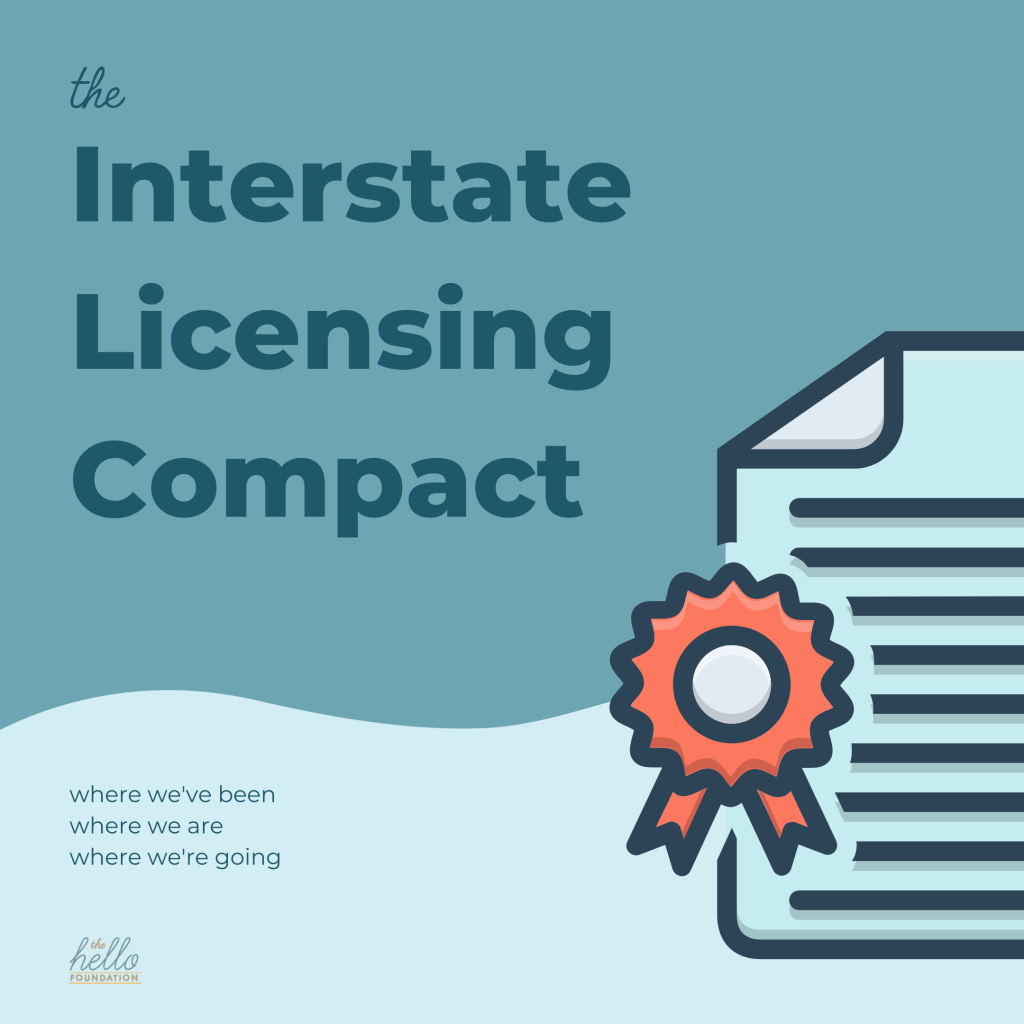Professional licensure is a bit of a pain to keep track of (and pay for!), but it is a necessary and appreciated protection for our field and for those who access our services. Traditionally each state has been able to set its own requirements for licensure, and SLPs have been required to meet requirements and timelines for each state they work in. As any clinician with multiple licenses can tell you, rules and expectations can vary quite a bit from state to state, and staying in compliance with each state’s requirements can be a confusing and expensive endeavor. Work began in recent years on a way to change that, allowing SLPs licensed in one state to apply for a “privilege to practice” in another partner state. Interstate compacts are common in other licensed professions and this highly anticipated development has the potential to be a game-changer for those of us in telepractice. The global pandemic brought many of the issues related to service across state lines into focus for non-telepractice clinicians as well, and the value of a more universal license became even more apparent.

The Audiology & Speech-Language Pathology Interstate Compact (ASLP-IC) is an agreement between states to facilitate the practice of audiology and speech-language pathology while maintaining the public protection offered through state licensure. In April 2020, Nebraska became the 10th state to enact the Interstate Compact into law, joining Alabama, Kansas, Kentucky, Louisiana, Oklahoma, North Carolina, Utah, West Virginia, and Wyoming. With the minimum 10 states required, the compact officially became operational. The ASLP-IC has now started the implementation phase. A commission composed of one audiologist and one speech-language pathologist from each participating state is being established. This commission will direct implementation in the member states and provide ongoing oversight, including the creation and maintenance of an instant verification database. They anticipate that they will begin issuing privileges to practice by summer 2022. So exciting!
Advocacy for the compact is ongoing in additional states and you can check this interactive map to find out the status in your state. Locally, we are disappointed that HB 3118 seems to have died in committee in the Oregon legislature but are hopeful that it will be resurrected next session. An interstate compact significantly reduces the barriers between high-quality clinicians and those who are most in need of their services and we eagerly anticipate a time in the not-so-distant future when state licensure no longer stands in the way of people receiving the care that they need.





